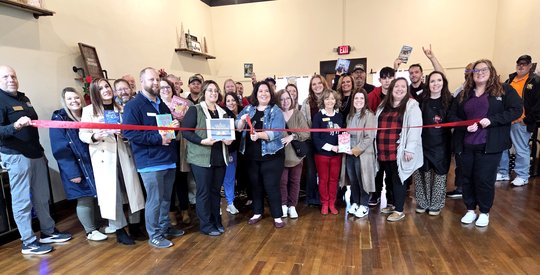Hollywood’s PAs Face Brutal Job Market Amid Industry Downturn

UPDATE: A drastic shift in Hollywood is leaving production assistants (PAs) struggling to find work as the industry recalibrates. Amid a significant slowdown in production, many PAs, like Mike McGuirk, are forced back into low-paying roles after having advanced in their careers, highlighting the urgent need for change.
In an industry once thriving with opportunities, McGuirk, now 37, recalls a grueling day on set that ended in frustration. After enduring a verbal outburst from a camera operator during a blizzard, he found himself reflecting on the precarious nature of his career. Once a promising second assistant director on major projects like Universal’s *Ted 2*, McGuirk is now back to working as a PA, earning between $230 to $300 for a 12-hour day.
This alarming trend stems from a broader industry contraction. Since early 2022, major studios have shifted from a growth-focused strategy to one prioritizing profitability, leading to project cancellations and budget cuts. This shift has hit PAs particularly hard, as they are often seen as expendable, struggling to climb the career ladder.
Many PAs, who typically start in entry-level roles, have spent years honing their skills on sets, yet they find themselves stuck. “It is an ecosystem. We do need to move up,” says Jon Hook, a PA based in L.A. The increasingly competitive environment has made it difficult for individuals without industry connections to advance, raising concerns about the future influx of fresh talent in Hollywood.
Those in the PA role face a grueling work culture where they are often overworked and underappreciated. The job typically requires them to perform menial tasks, including escorting talent and managing logistics, all while adhering to unspoken rules that discourage breaks and idleness. “Being a PA is maybe the hardest thing you’ll do in the industry,” says Alison Brown, an executive producer on *Emily in Paris*.
As the industry grapples with these challenges, many PAs are considering alternative career paths. With opportunities dwindling, some are turning to social media platforms or other sectors like gaming, indicating a potential talent drain from traditional film and television. “You graduate college right now, and your best option is to go work at a talent agency,” says Jack Arruda, a recent film school graduate.
Amid this crisis, a grassroots movement, Production Assistants United, has emerged, advocating for better wages and structured career pathways. Founded in response to the 2023 strikes, the group aims to establish a union to bring attention to the plight of PAs and ensure their voices are heard in an industry that often overlooks their contributions.
The pressure on PAs is palpable, with many feeling the impact of a shrinking job market. As Elaina Levy, a former production coordinator turned PA, explains, “It’s been very rocky. You can tell where the industry stopped being willing to bring in new people.”
While some PAs remain hopeful, participating in their own creative projects, the overall sentiment is one of uncertainty. The industry’s traditional pathways appear blocked, leaving many to question if they can achieve their Hollywood dreams.
As 2025 approaches, the future for PAs remains bleak. The question looms: Can the industry adapt to support its most vulnerable workers? For now, many PAs must navigate a treacherous landscape, fighting for their place in a rapidly changing Hollywood.






